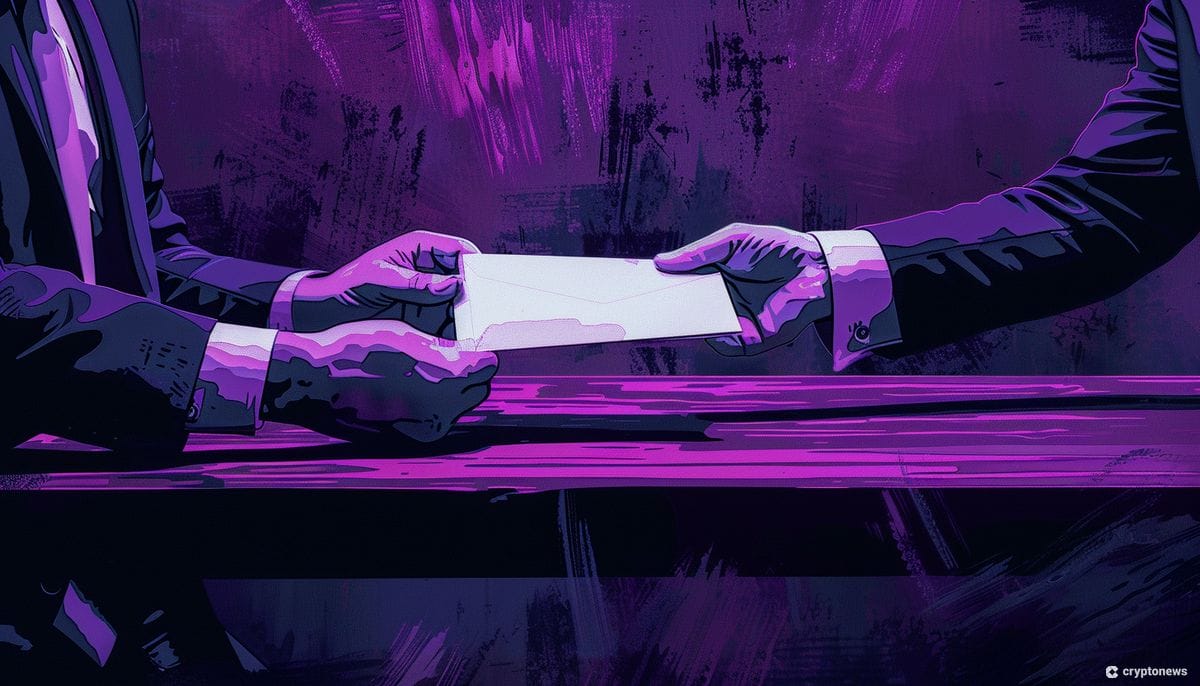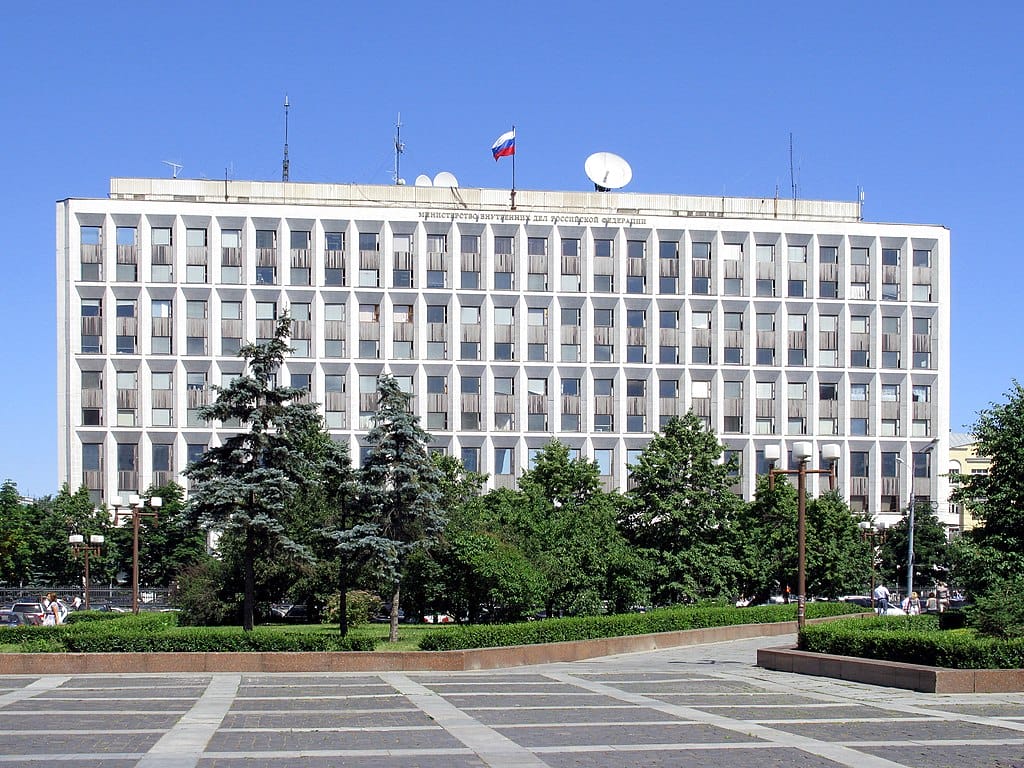Russian Ministry Officials ‘Took BTC, ETH Bribes from Crypto Exchange Exec’

Russian Ministry of Internal Affairs officials took a $53.2 million Bitcoin and ETH bribe from a crypto exchange executive, a major newspaper in the country claimed this week.
Per Kommersant, the officials were named Georgy Satyukov and Dmitry Sokolov, employees at “one of the ministry’s most secret divisions.”
The media outlet and major Russian Telegram news channels claimed the duo worked at the Bureau of Special Technical Events. The bureau is allegedly codenamed “Department K.”
Reports claim the duo received their bribes in crypto over a period from March 19 to October 2021.
Russian Ministry of Internal Affairs Rocked by Crypto Bribe Allegations
Telegram news channels claimed Department K is a secret cyber crime investigation unit. The unit appears to have been investigating the BTC-e crypto exchange.
A computer expert named Alexander Vinnik founded BTC-e. Vinnik worked at the firm from 2011 to 2017. He was arrested in Greece in 2017 on fraud and money laundering charges.
Media outlets explained that a Singapore-based firm named Wex took over BTC-e business operations. However, questions remained over what should happen regarding BTC-e customer funds.
Law enforcers allegedly believe a Wex executive named Alexey Ivanov offered Satyukov and Sokolov Bitcoin and Ethereum coins to “protect” him from a police probe.
Officers reportedly believe Ivanov sent Satyukov and Sokolov a combined total of BTC 2,200 and “more than ETH 10,000 thousand.”
The media outlets said the money “was transferred through Sokolov to cryptocurrency wallets held by Satyukov.”
German authorities arrest two men suspected of espionage for Russia and membership of a terror group planning acts of sabotage against military and industrial sites https://t.co/nKRj62Obb6
— Bloomberg (@business) April 18, 2024
Officials ‘Fled Country Fearing Prosecution’
Kommersant said the duo had been arrested “in absentia” after fleeing the country. An unnamed source said they were residing in Dubai, with one living in an apartment in the Burj Khalifa – the world’s tallest building.
The media outlet said that investigators had “learned about the alleged corruption in the department of the Ministry of Internal Affairs” from Ivanov.
The latter was accused of embezzling money from a crypto exchange in 2023. Kommersant said Ivanov had agreed to provide information in a “pre-trial agreement” with the First Deputy Prosecutor-General Anatoly Razinkin.

Satyukov, the media outlet continued, is a former “head of a department that combats IT-related crimes in the credit and financial sector.”
The newspaper wrote that, if the duo were guilty, this would be a new record for a bribery case in Russia.
The previous “holder” of this “record” was another interior ministry official, Colonel Dmitry Zakharchenko. The latter was jailed for 13 years in 2019 after taking a bribe worth almost $15 million.
‘People Think Crypto Transactions Aren’t Traceable. They’re Wrong’
Media commentators said there was “a misconception that bribes or any fraudulent actions that make use of cryptocurrency cannot be tracked” in Russia. As such, many corrupt officials “actively use” crypto.
BFM quoted the Co-chairman of the Russian Association of Cryptocurrency and Blockchain Alexander Treshchev as stating:
“There is great uncertainty about the legal status of cryptocurrency in Russia, even though there are at least 1.5 to 2 million crypto traders in this country. Few of them know anything about whether [crypto trading] is legal. They don’t know what can be done, and what cannot be done.”
⚡️ Russian Government Crypto Chief: Mining Regulation Is Our Priority
The Russian government’s crypto working group chairman believes Bitcoin (BTC) mining regulation is now a priority for Moscow.#CryptoNews #newshttps://t.co/Gqdg4vwnZB
— Cryptonews.com (@cryptonews) April 9, 2024
Treshchev added:
“As we can clearly see, law enforcement officers have begun to understand what crypto wallets are and how to transfer [coins]. But they are still just as naive as everyone else in that they do not understand that every single transaction is traceable [on blockchain networks].”
Russia’s lack of crypto regulation has become a thorn in Moscow’s side. Earlier this year, the Financial Action Task Force (FATF) downgraded Russia’s compliance rating due to its “insufficient regulation of virtual assets and cryptocurrencies.”
Politicians and central bankers have claimed they are close to issuing a draft crypto regulation bill, with industrial miners urging a faster rollout for legislation.
Earlier this week, anti-corruption officials in Ukraine announced that a serving lawmaker will stand trial after allegedly trying to bribe a public official with Bitcoin.







